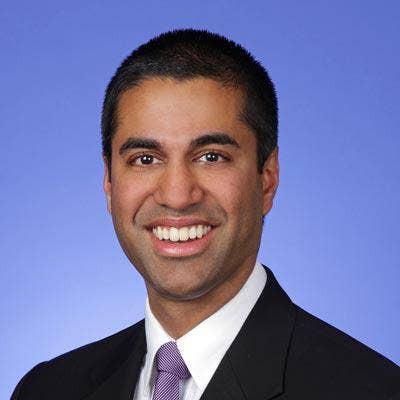Carrier Catchup: A Look At The Latest Buzz From The Telecom Industry

Telecom Turmoil
March proved to be a difficult month for the telecommunications industry as AT&T went to battle against the Department of Justice over its proposed Time Warner merger, Sprint cut jobs, and CenturyLink sought to shut down another legacy service. At the same time, however, Verizon made some long-awaited changes to its channel program that partners have been specifically requesting.
CRN rounded up news from the industry-leading service providers and other attention-grabbing headlines that happened within the telecom industry in March that solution providers should know about.

AT&T Goes To Trial with Justice Department
The highly anticipated showdown between AT&T and the Department of Justice (DoJ) began at the end of March, with opening statements from both sides presenting very different outcomes for how the Dallas-based carrier's proposed acquisition of entertainment giant Time Warner would shake out.
The case is centered around the debate regarding whether the deal could force customers to pay more to watch certain cable programming that AT&T will gain as a result of the acquisition. The DoJ is suing to block the $85 billion deal, and the trial is ongoing.

Verizon Changes Up Channel Program
Telecom giant Verizon in March revamped its channel program , the Verizon Partner Program (VPP), revealing arguably the biggest change for partners to date: a residual compensation model.
The five-year old program now includes features from Verizon's legacy program and the former XO Communications partner program. The revitalized VPP will focus on its relationships with the largest master agents as a way to go to market with agent partners. The program also includes a more flexible channel engagement model so partners have the option to do direct teaming alongside the Verizon sales team or sell Verizon products on their own.
Lastly, partners can still work with the carrier through a traditional reseller model, or they can earn compensation via a monthly recurring revenue model, according to Bill Hooper, director of SMB Partner Channel for Verizon Business Markets.

FCC Proposes Ban On Use Of Universal Funds To Buy From Huawei, ZTE
The Federal Communications Commission (FCC), under the leadership of Chairman Ajit Pai (pictured), proposed a rule last month that will ban local communities from dipping into the FCC’s $8.5 billion Universal Service Fund to purchase telecommunications equipment that poses a national security risk to the United States.
The proposal in particular calls out Chinese firms Huawei and ZTE, who have been tied to concerns that the Chinese government uses these companies' equipment to spy on foreign telecom networks. The proposal could be passed on April 17.

Sprint To Slash Jobs At HQ
Sprint confirmed that it will eliminate 500 jobs at its Overland Park, Kansas headquarters as the carrier tries to cut costs.
A Sprint spokesperson said that the jobs cuts could impact any of the 6,000 employees currently working at the company's headquarters. As of the end of March, some employees had been notified that their positions had been eliminated, but not all have received notice so far as decisions are still being made, according to Sprint. The second round of cuts comes after the carrier had slashed 116 jobs at its headquarter location in 2016.

CenturyLink To Shutter Another Legacy Telecom Service
CenturyLink has asked the FCC for permission to close down its Call Event and Management Signaling Service (CEMSS) in 14 states.
The Monroe, La.-based carrier said that it currently has no customers for its service, which is used by third-party service providers to deliver enhanced services across CenturyLink’s local exchange network. The CEMSS is considered a "Basic Service Element" and CenturyLink wants to discontinue the offering as of June across Arizona, Colorado, Idaho, Iowa, Minnesota, Montana, Nebraska, New Mexico, North Dakota, Oregon, South Dakota, Utah, Washington and Wyoming.